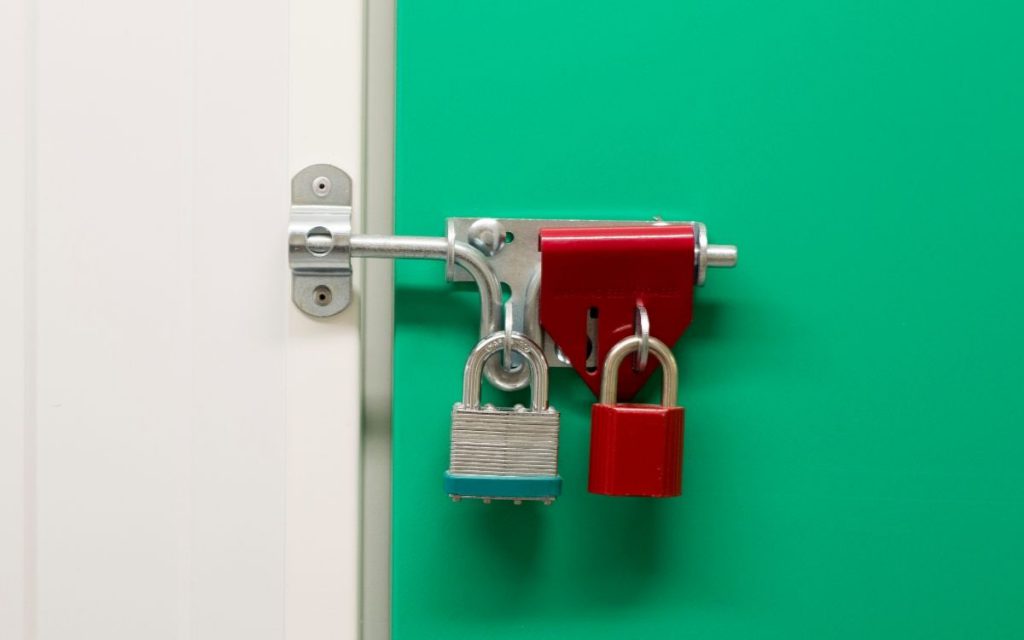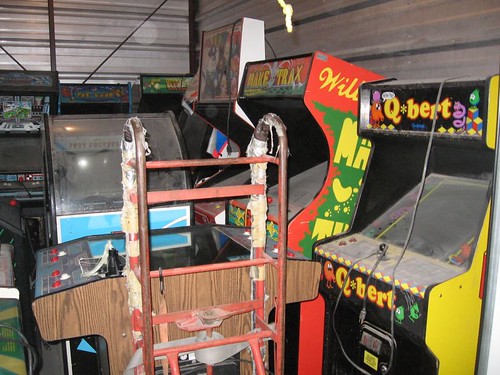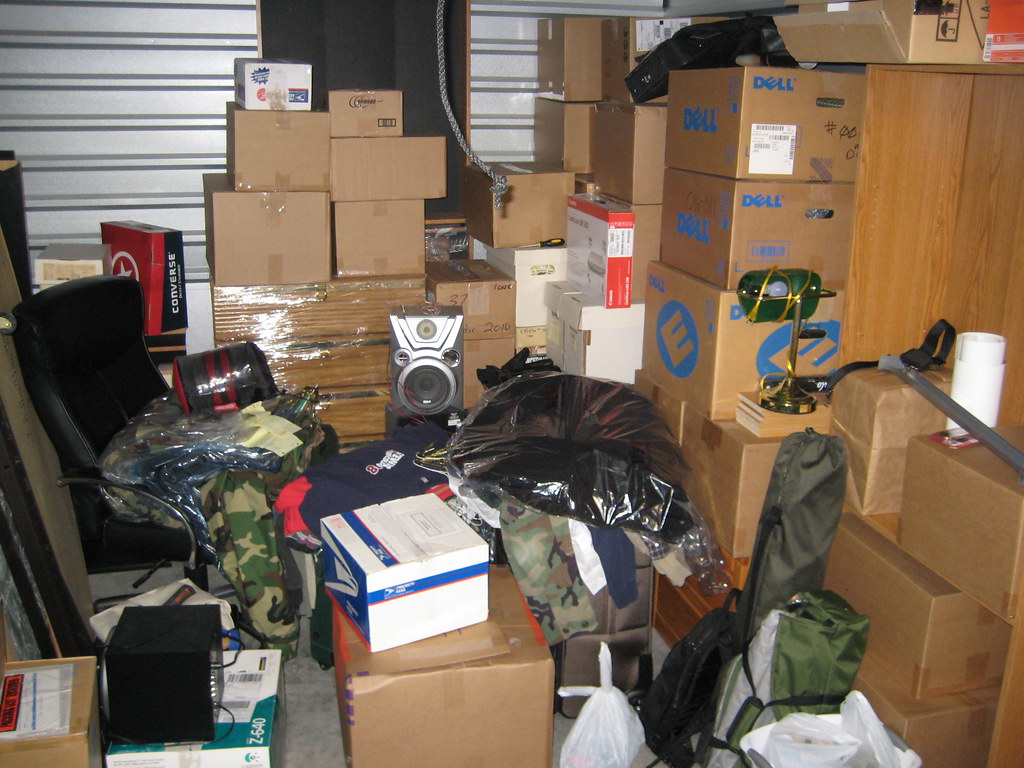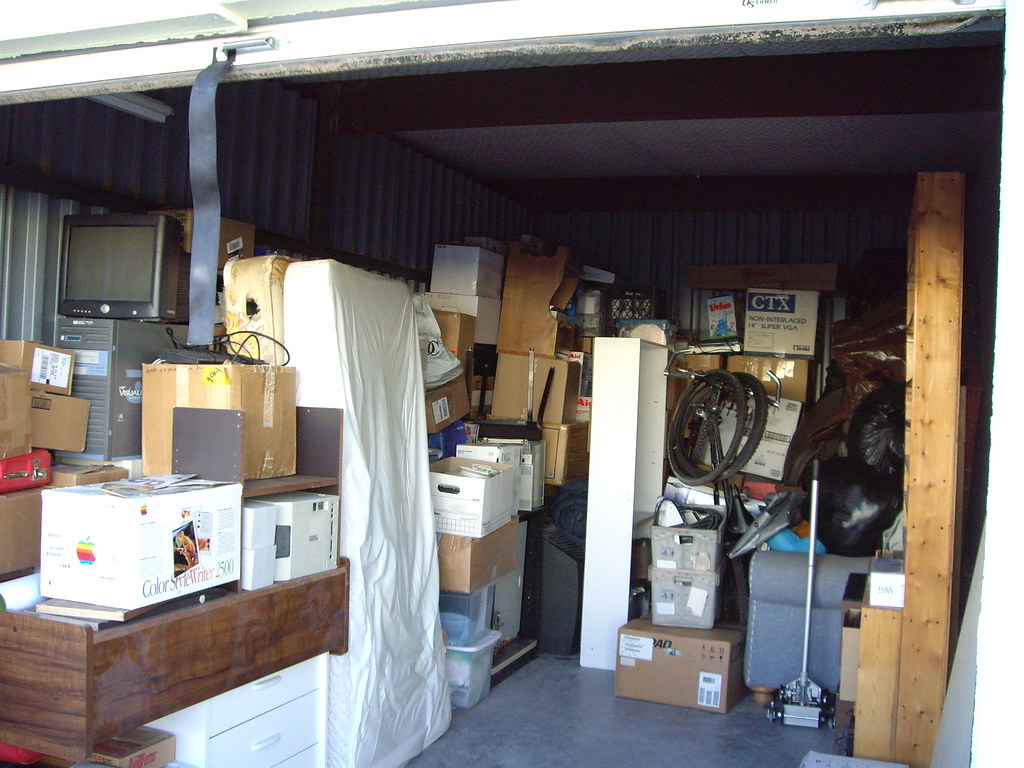





Self-storage units are a great way for people to store their items and personal belongings. Unfortunately, there are times when tenants renting the units don’t pay their dues and become delinquent.
Storage unit auctions are the last resort facility owners undertake when these situations arise. When the tenant doesn’t pay their monthly dues or has simply just abandoned the unit, the self-storage company has the right to sell the contents of the unit in a public auction to the highest bidder.
Nearly every state has a law that grants owners a lien on the property of a delinquent tenant. Although there are specific laws per state regarding the laws for selling storage unit contents.
From notice requirements and ad placements to the actual process and regulations during the auction, it is important as a self-storage owner to be educated about these laws in your state.
For example, some states/municipalities require that you hire a licensed auctioneer.
This article does not serve as legal advice, merely an overview of how this process works for many self storage facilities. As a business owner (or tenant) it is your responsibility to know the laws in your state and follow them.
Understand the laws and follow the requirements and procedures meticulously to avoid any complications and to make sure the sale is conducted in the most efficient, legal manner. This is especially the case currently when many states have legislation that has changed the auction process due to the pandemic.
Why You Should Auction off a Storage Unit
When a tenant doesn’t pay their rent, auctioning off their storage unit is (in most states) the storage facility’s only legal recourse to recover the financial loss incurred due to tenant non-payment.
Holding an auction may also be the facility’s only legal means of removing the delinquent tenant’s property from the unit so that it can then be cleaned and rented to a new, paying tenant.

When Can a Storage Unit Be Auctioned off?
In most states, tenants have between 30 to 90 days past due to pay the full amount of the dues they owe to the storage facility to avoid their unit being auctioned off.
The period after which you can auction off a storage unit varies from one state to another. Make sure to check your storage unit auction laws in the state where your facility is operating.
There is also specified dates for when storage owners can place an advertisement and hold the auction. So make sure you’re up to date on your state’s self-storage lien laws and regulations in order for the auction process to go smoothly.
How Does a Storage Unit Auction Work?
Storage tenants are typically sent a pre-lien notice prior that lets them know their unit has become delinquent enough to be auctioned and outlining the details for when the unit will go into “lien” status.
If the delinquent tenant has still failed to pay their balance or make arrangements with the facility after they receive the pre-lien notice, then the facility can move forward with the final notice, the lien sale notice.
In most states, the storage facility must notify the tenant of the lien sale (auction) by the self-storage facility through a certified letter delivered to the address the tenant provided.
This notification letter gives the tenant one more chance to pay any outstanding rent and late fees within a specified time frame to avoid the contents of their unit being sold, as well as details about the auction.
After the notification letter is sent to the tenant, self-storage owners can now advertise and publish the auction sale. If the tenant doesn’t pay on the deadline date, the storage owners can go ahead with the public auction.

Before the Auction Begins
In a storage unit auction, bidders can only bid on all of the contents of the unit, not just for a single item. The sale may happen as a live auction or an online auction.
Define the rules and disclaimers carefully for the bidders to avoid buyer’s claims.
Specify if you’re selling a single or multiple units, if they can inspect the unit or just look at the contents from the doorway. Explain the process of how the sale will be conducted, the payment procedures, minimum bids, sales tax rules and time period allowed for clearing out the contents. The bidders should sign a copy of the written rules.
During the Auction
Before the live auction, interested bidders gather together to start the storage unit auction. The storage company informs and educates the bidders regarding the rules of the auction. The storage unit door will be opened for the bidders to get a look into the items inside the storage.

The auction starts with a minimum bid and the bidders continue to bid for the property aloud, increasing their bids until an amount is reached that no one wants to bid beyond.
Some storage facilities or auction facilitators conduct the bidding process with sealed bids. Sealed bidding is similar to a silent auction. The bidders put the bidding price in an envelope and it is collected by the storage company. Whoever has the highest bid wins the unit.
In either case, the highest bidder wins the auction and pays the amount they bid on the unit’s contents. The payment is usually settled immediately after the auction is concluded or a day after. After the payment, the winning bidder is given a set window of time to remove the contents of the unit, usually within 48 hours.
The unit must be emptied out completely, as well as cleaned to the storage facility’s usual move-out standards. The winning bidder also has the option to sign a rental agreement with the storage company to keep the space longer to allow more time to fully clean and move the items out.
There are some instances when the new owners of the unit’s property comes across personal items from the previous owners inside the storage unit. The winning bidder may want to turn photographs or personal items in to the storage office in hopes that they may somehow be returned to the old owner.
Storage Unit Auctions Rules and Laws
While there are certainly laws in place that allow self-storage companies the right to legally sell delinquent tenant’s personal properties at auction, many customers will likely be confused and furious with the storage facility for selling their personal belongings.
With this, being updated and following the laws correctly and having a well-planned, written set of rules will protect you from potential litigation. Each state has different lien laws, procedures and requirements regarding storage unit auctions so it is best to consult your state’s local Self Storage Association.
All storage owners must adhere to their state’s rules and laws and follow them precisely. It is imperative to check your state laws regularly and double-check these laws every time you make a unit sale auction.

Giving Notice – Required Information
There are specific notice and advertisement requirements that dictate the manner in which each type of notice must be sent and the information that must be included therein, as well as the content of any advertisements published regarding the auction.
The specific requirements for the content of required notices varies from state to state. The lien sale notice usually should include
- an itemized statement of the storage facility’s financial claim
- description of the property within the unit (if available)
- demand of payment within specified time
- statement that the property will be sold through a public auction if the delinquent tenant doesn’t pay
- details of the auction, including date, time, and location
The notification must typically be followed by an advertisement.
Giving Notice – Delivery Method
When sending out notification letters to delinquent tenants, several states currently allow certain notices to be sent via email. As with lien laws and auction regulations, there are some restrictions on emailing notices depending on the state.
Some require you to mail a physical letter to the tenant’s mailing address if the email bounced off or if you don’t get notification that the email was delivered.
Some state laws require sending lien notices to both the tenant and an alternate contact with a different mailing address. This is for such cases when the email or mail won’t get delivered or the tenant moves into another address.
Online vs Offline Storage Unit Auctions
Online storage unit auctions have stricter guidelines than in-person auctions, and often require photographs of the unit be taken – to the best of the storage facility’s ability – to be published in the online auction listing. A few states have allowed online auctions, including California, Florida, Texas, Washington, and Montana.

Most states require the sale to take place at the storage facility. Some states require a licensed auctioneer during the auction sale and others exempt. self-storage operators from having to use a licensed auctioneer.
If the auction produces more money than what the delinquent tenant owes, in some states it is mandated that the excess money be given to the tenant. If the tenant can’t be located, the excess money should then be turned over to the municipality’s unclaimed property division.
Pennsylvania, New Jersey, and New York are just a few of the states that have adopted this rule.
As state laws for storage unit auctions change every so often and a lot of states are beginning to modernize their regulations for storage auctions, storage owners should be meticulous in checking their state laws. It is important to be up to date and follow these rules and laws carefully and accurately to conduct an efficient and legal storage unit auction.